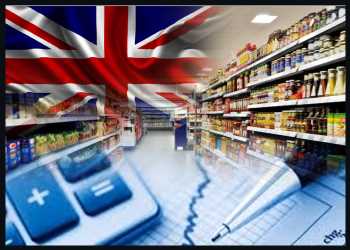UK retail sales grew at the fastest pace in four months in February on robust non-food stores sales even as high inflation eats into households’ purchasing power, data from the Office for National Statistics showed Friday.
British consumers’ confidence strengthened to a one-year high in March driven by the rising willingness to buy and improved assessment about the overall economy, separate survey results from the market research group GfK revealed.
Retail sales volume increased 1.2 percent on a monthly basis in February, following a revised 0.9 percent rise in January, the Office for National Statistics reported. The pace of expansion was forecast to ease to 0.2 percent.
This was the biggest monthly rise since October 2022 which was affected by the additional bank holiday for the State Funeral in September.
Food store sales gained 0.9 percent from January. Non-food store sales grew 2.4 percent because of strong sales in discount department stores.
Meanwhile, automotive fuel sales slid 1.1 percent, following January’s 1.1 percent rise when rail strikes may have increased car travel, the ONS said.
Excluding auto fuel, retail sales advanced at a faster growth of 1.5 percent after an increase of 0.9 percent a month ago. The rate also far exceeded economists’ forecast of a 0.1 percent gain.
Despite two consecutive rise in retail sales, sales volumes decreased 3.5 percent from the last year. Sales were forecast to drop 4.7 percent after January’s 5.2 percent decrease.
Likewise, sales excluding automotive fuel posted an annual fall of 3.3 percent, following a 5.4 percent drop in January.
Elsewhere, the GfK survey showed that consumer confidence strengthened in March still the reading remained negative signaling pessimism due to continuing concerns about personal financial situation as high inflation squeezed household budgets.
The consumer confidence index rose to -36 in March, in line with economists’ expectations, and up from -38 in February.
Source: Read Full Article
